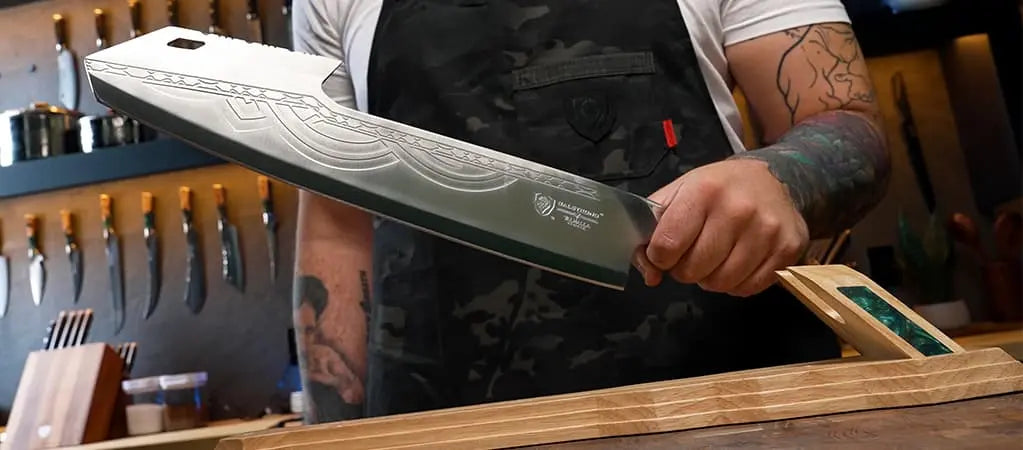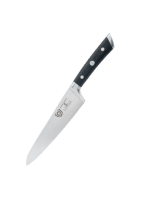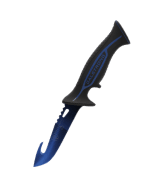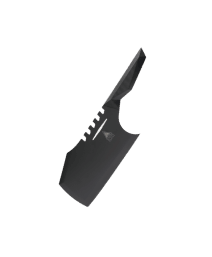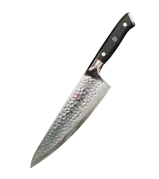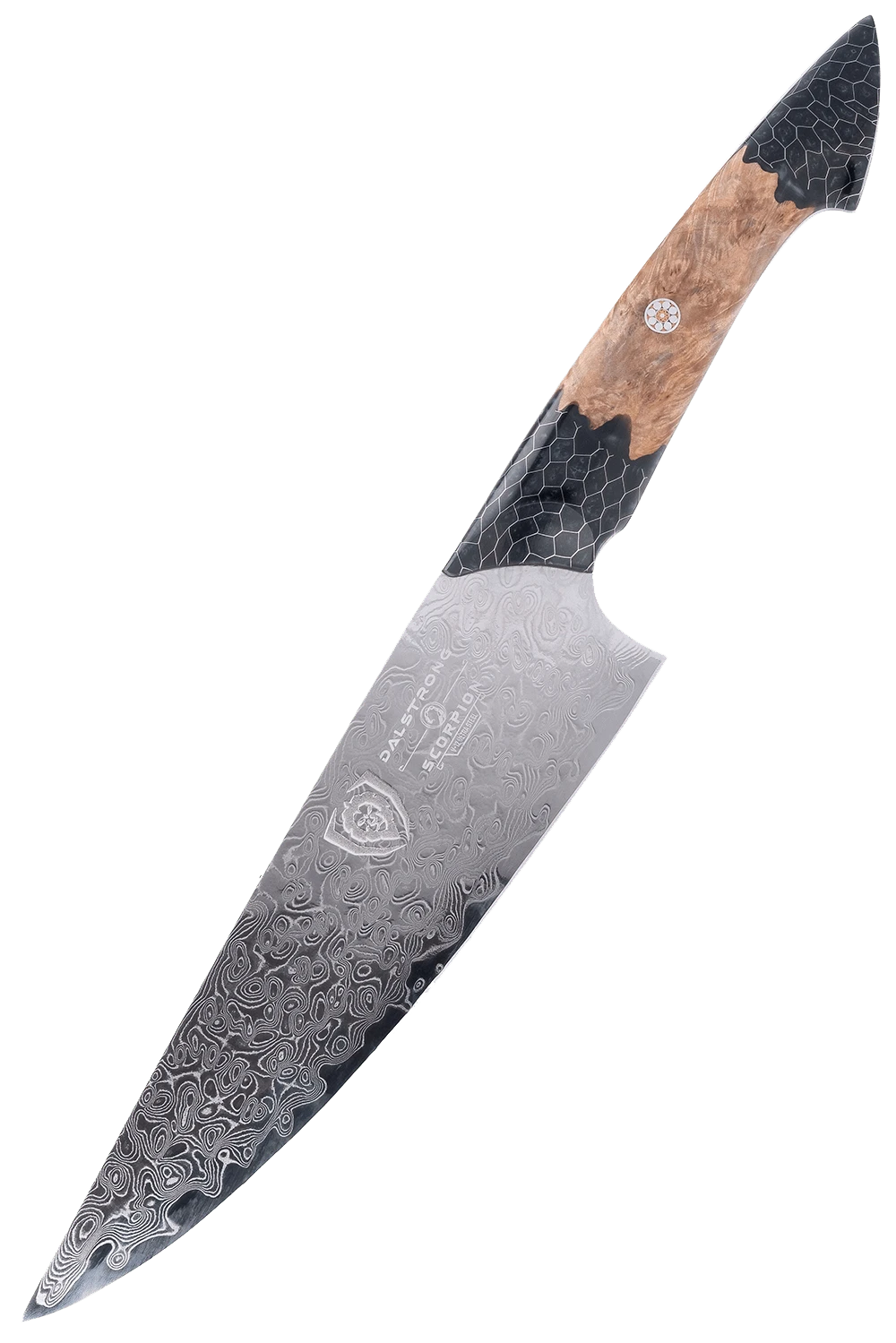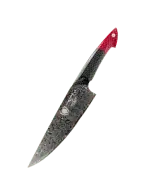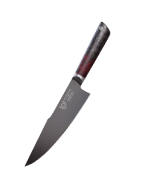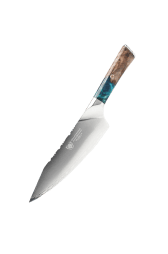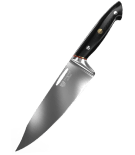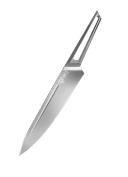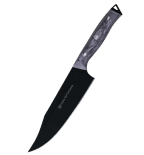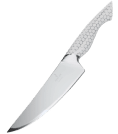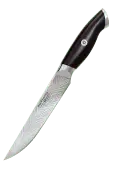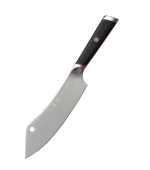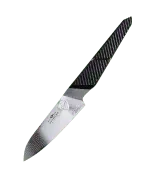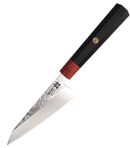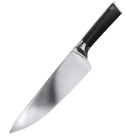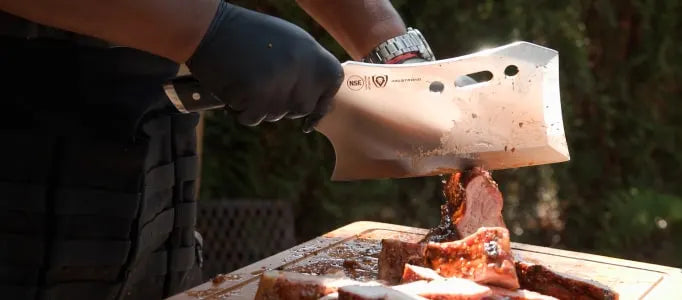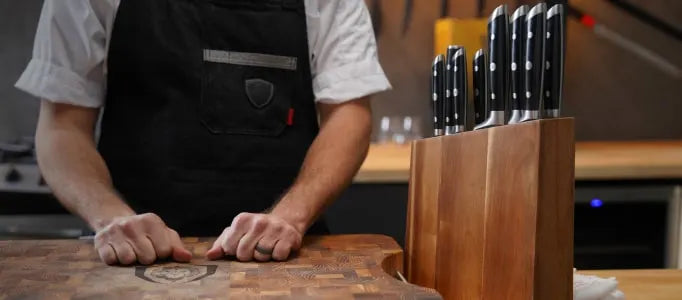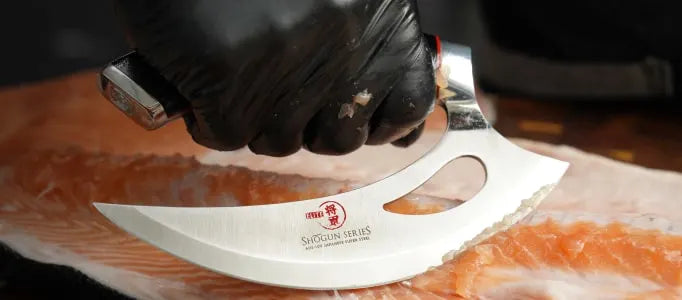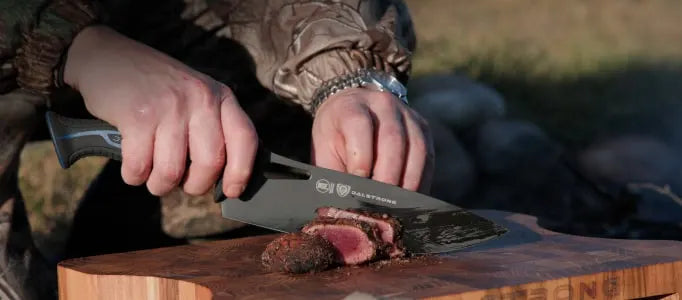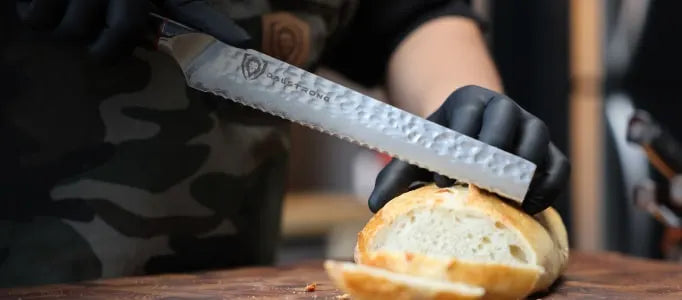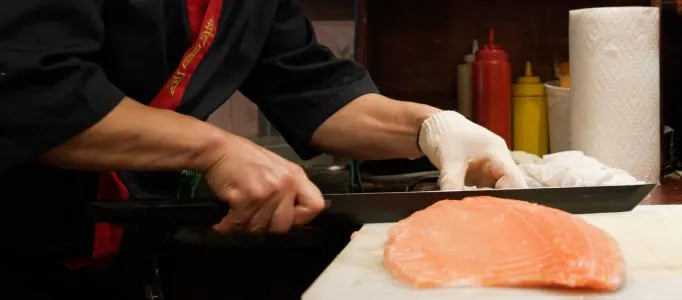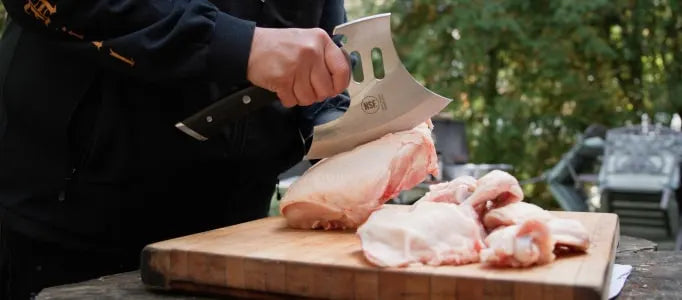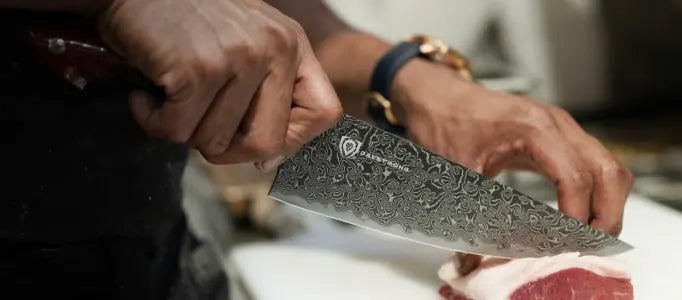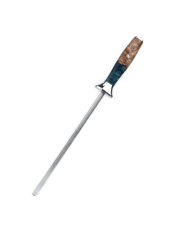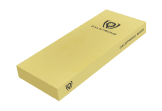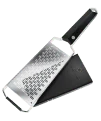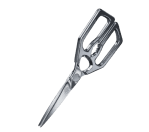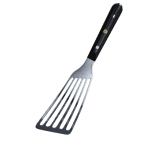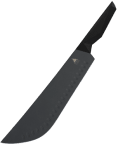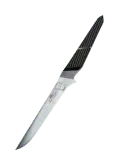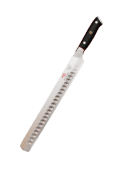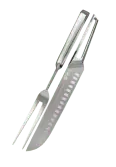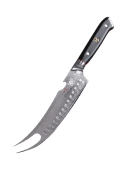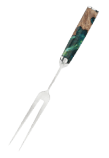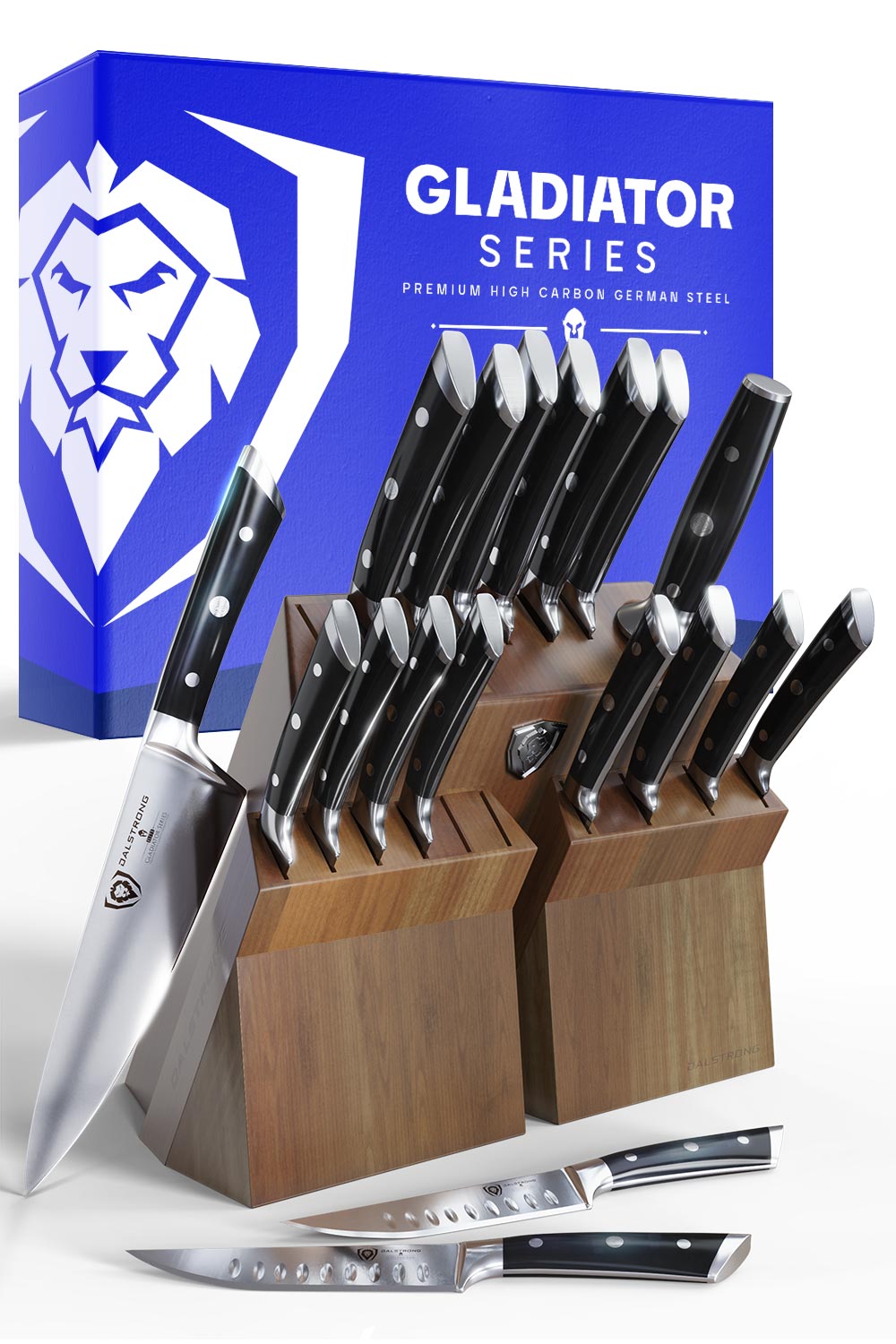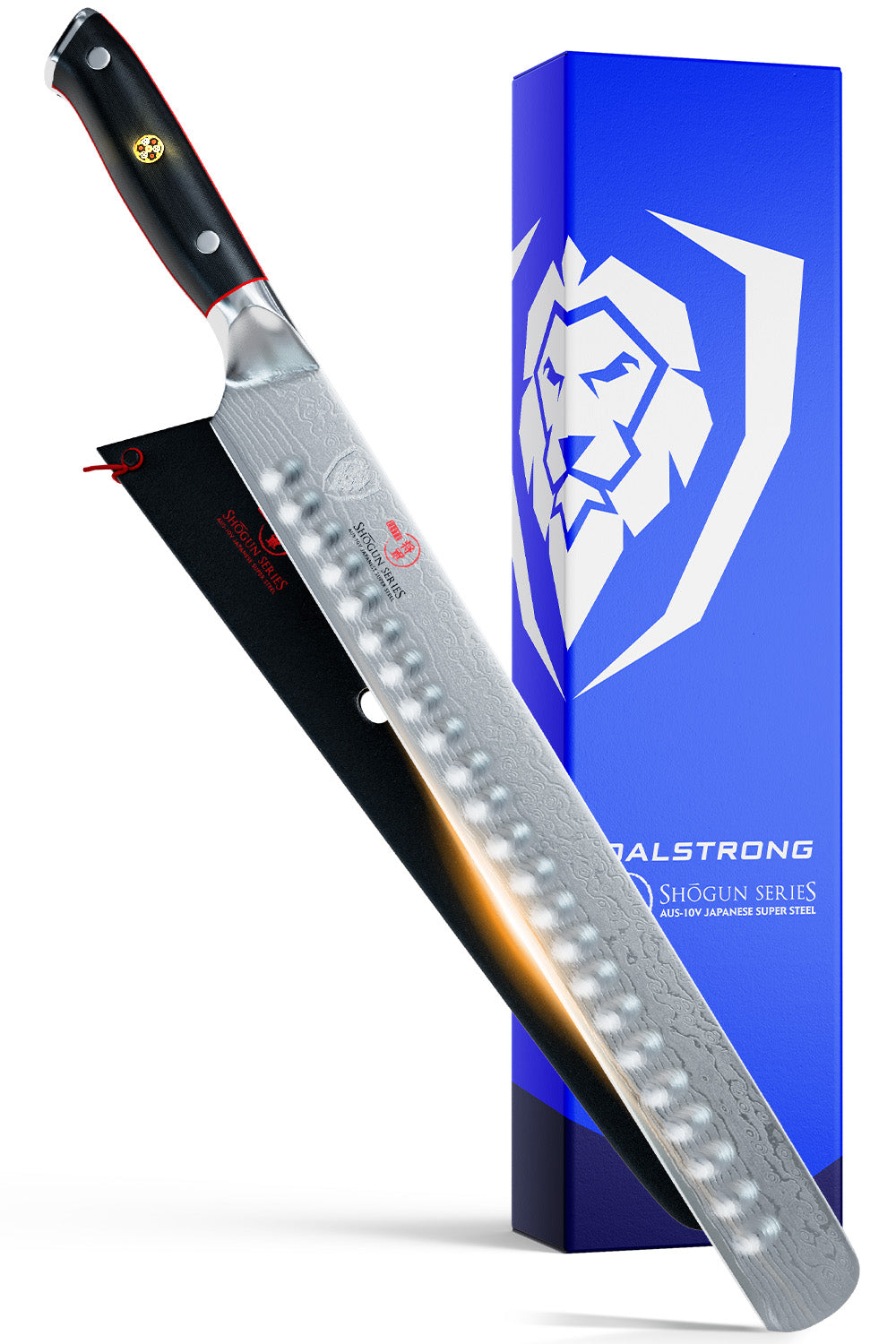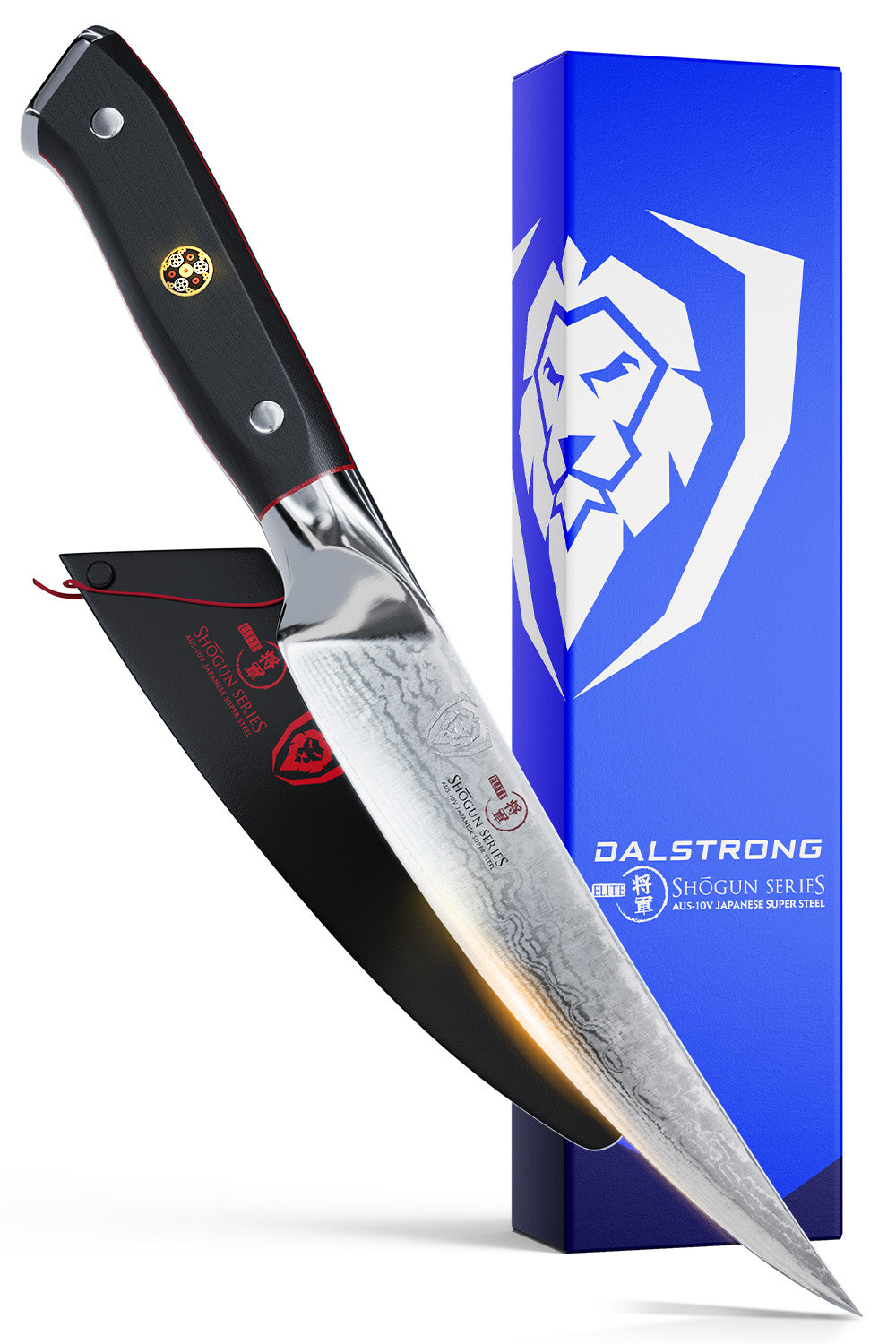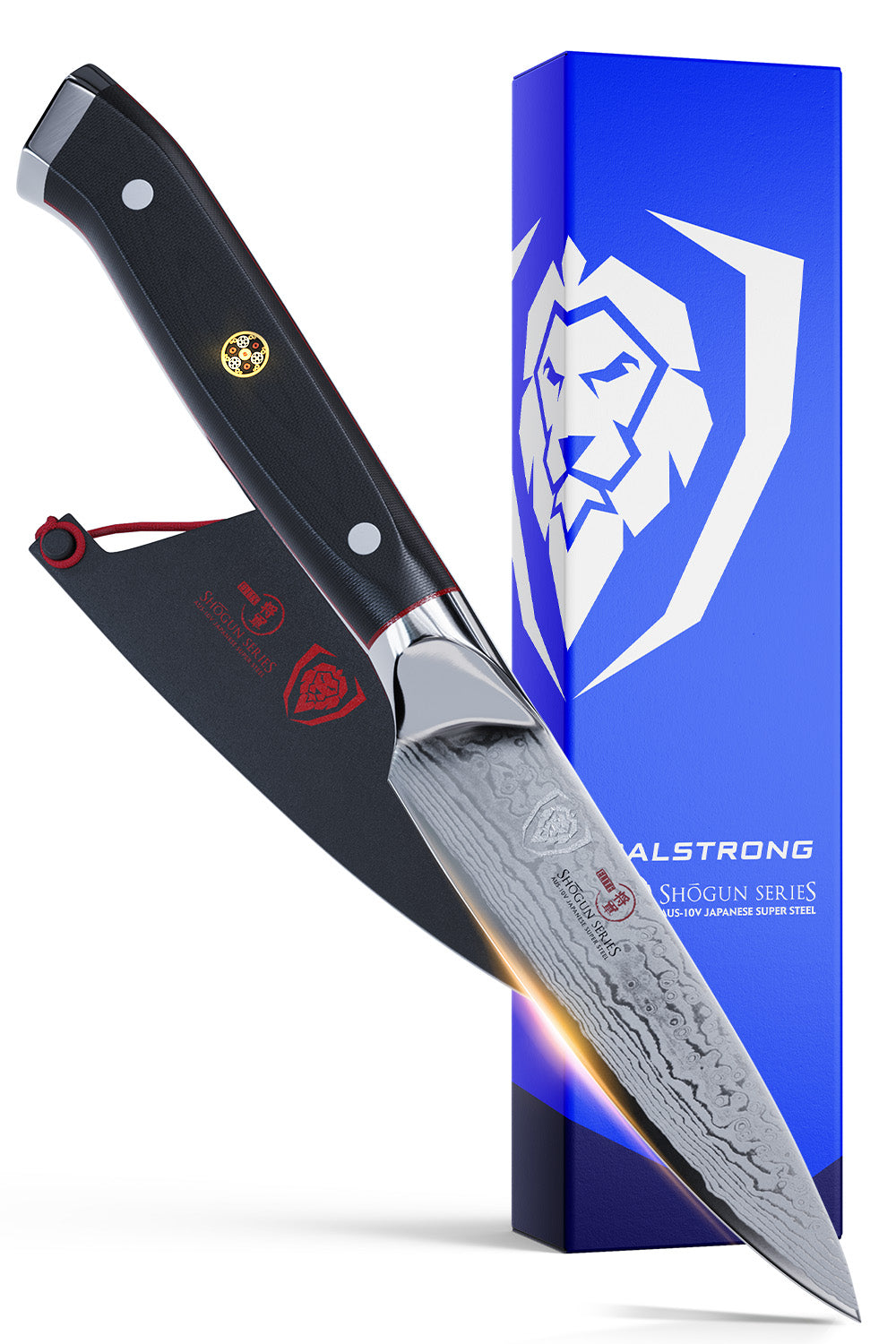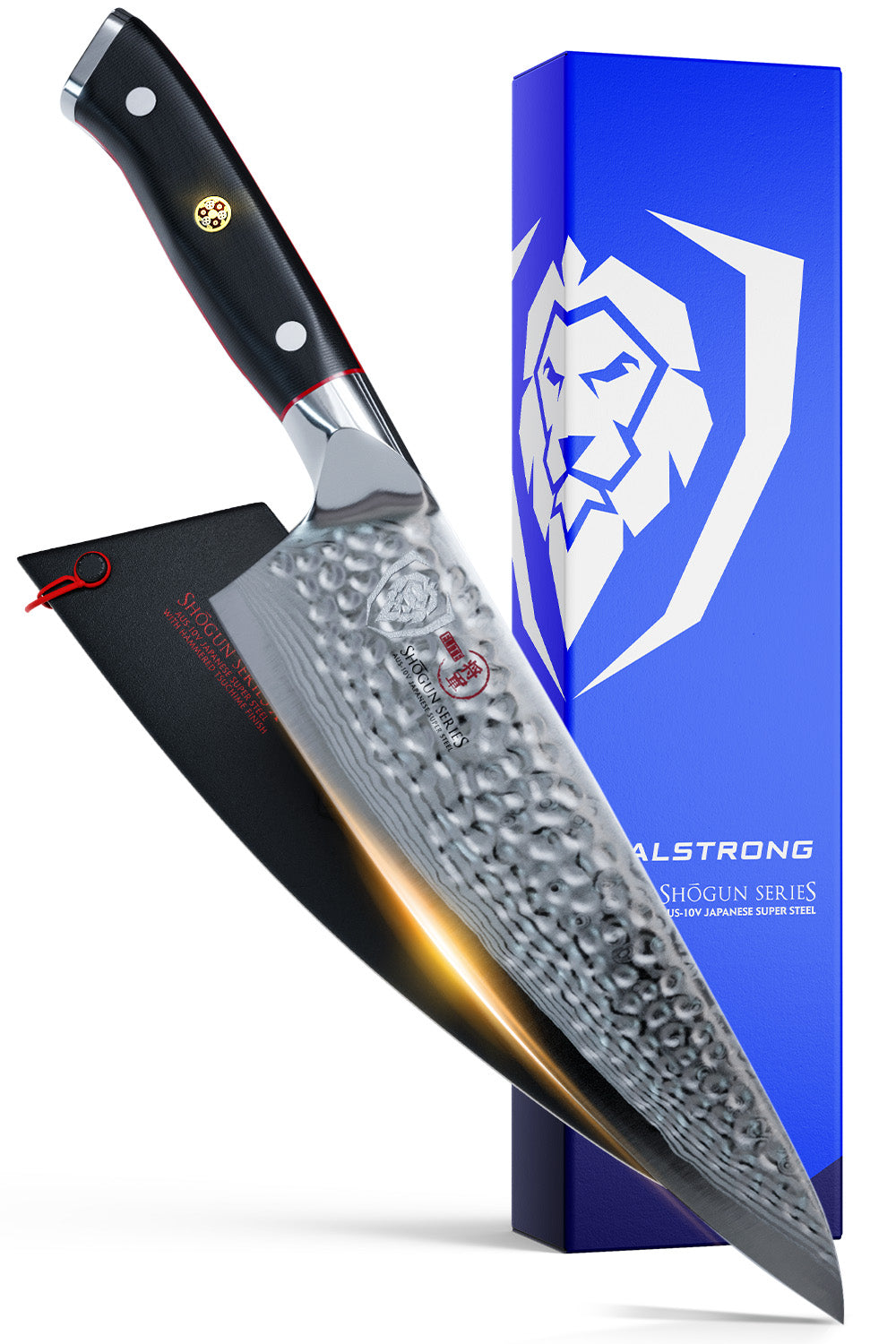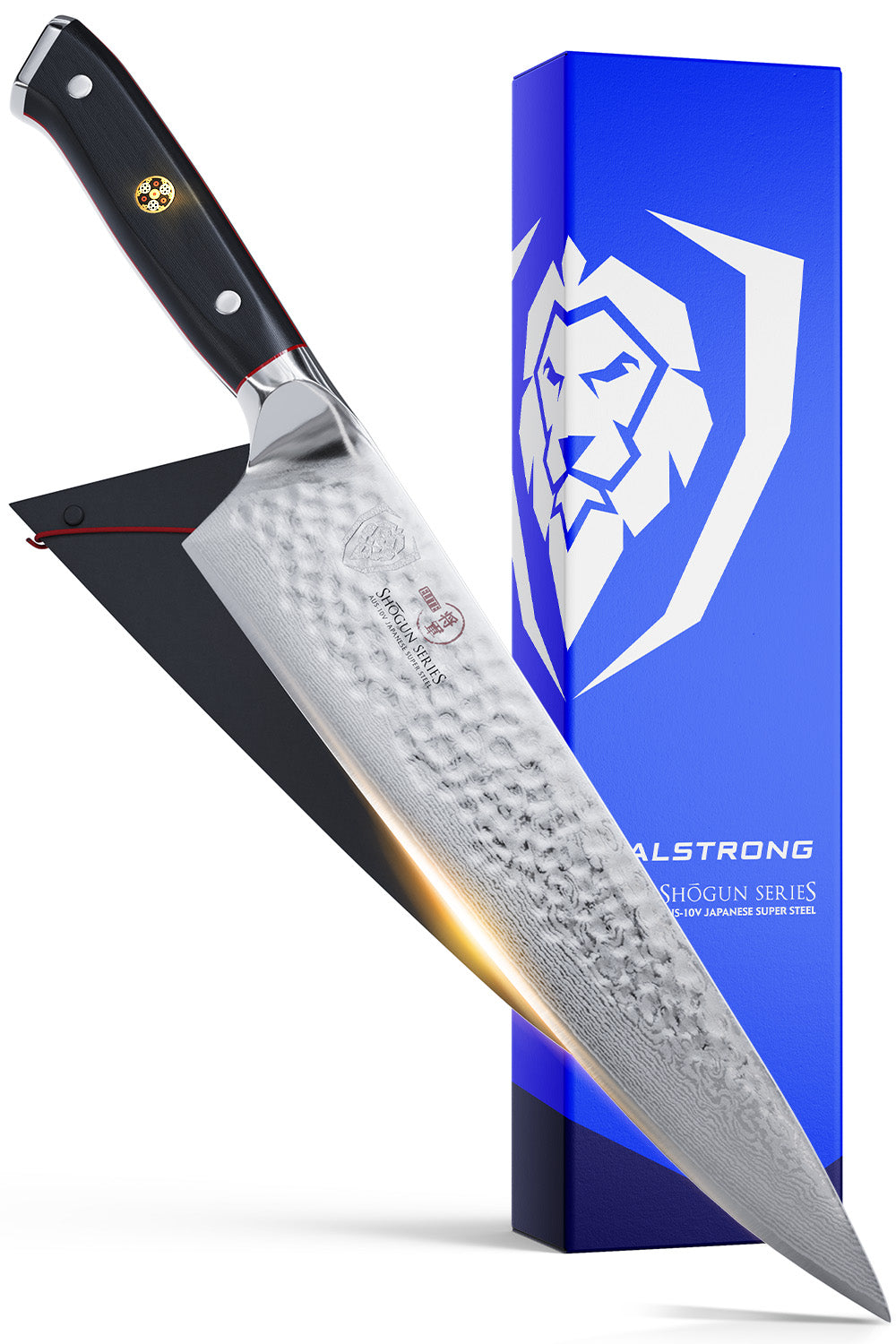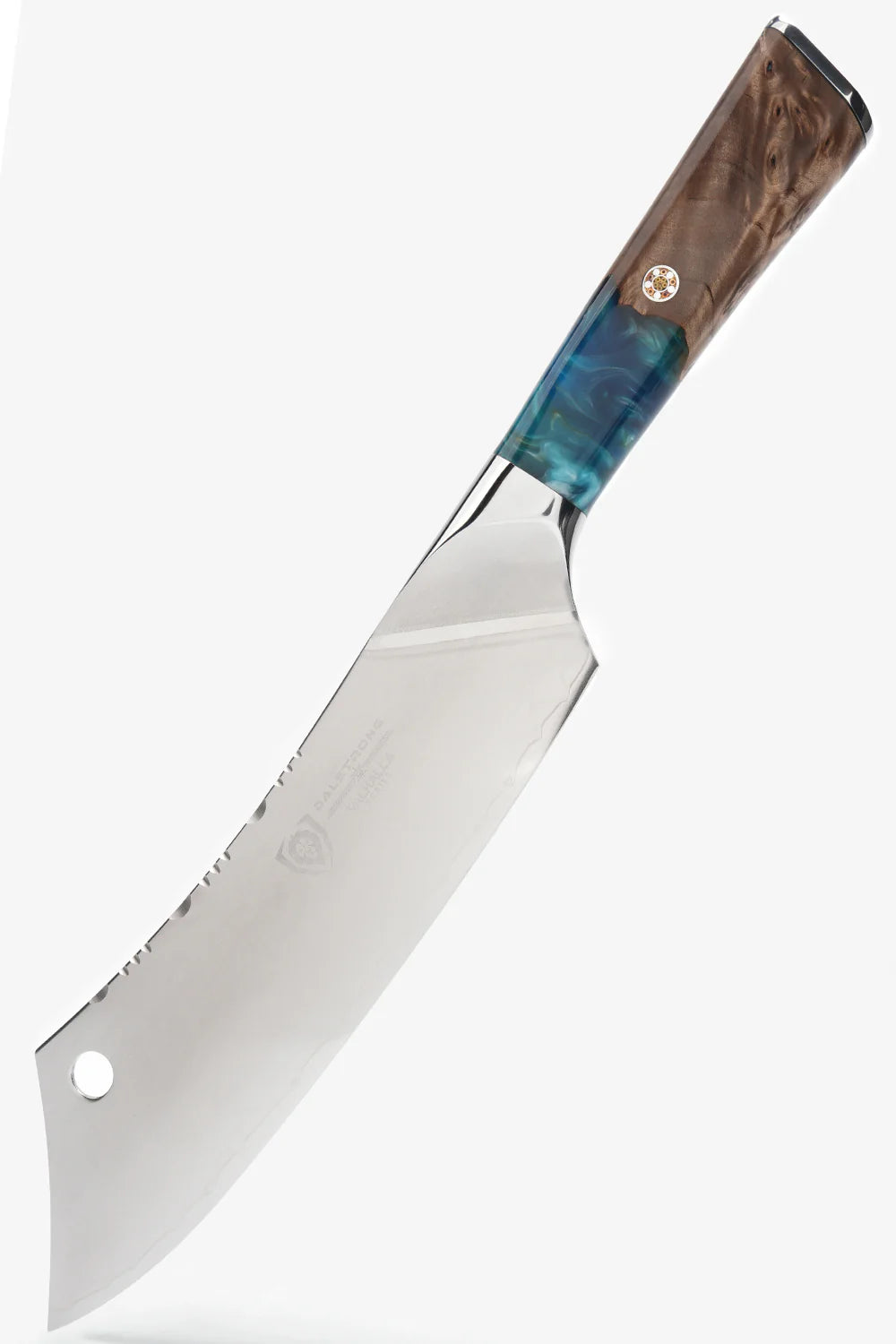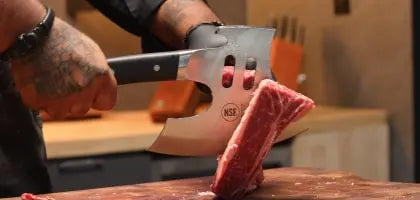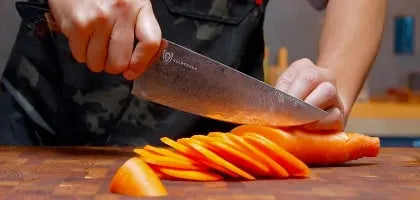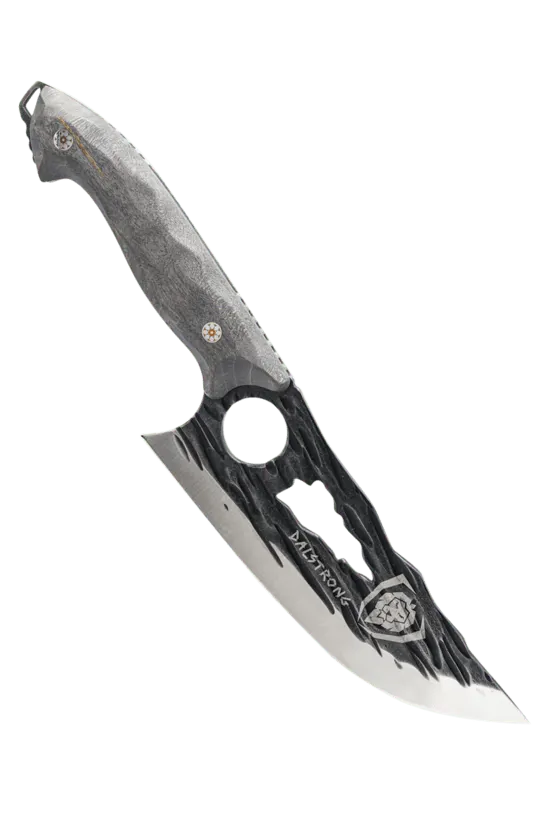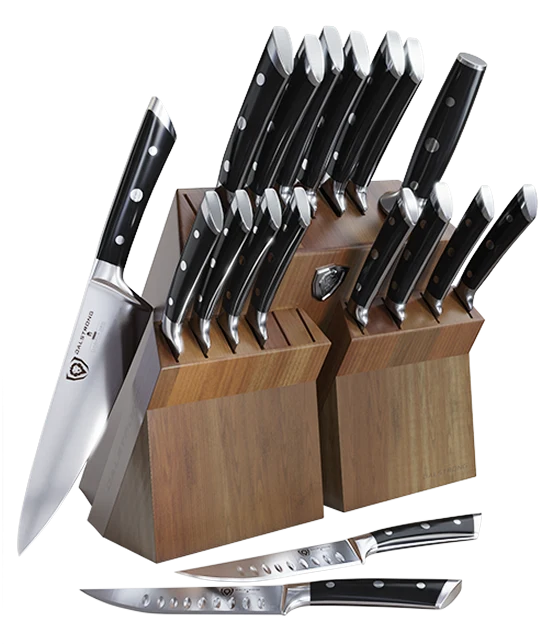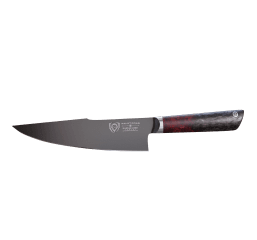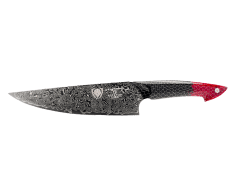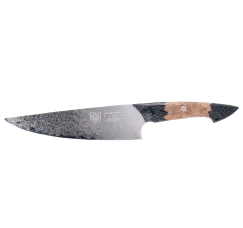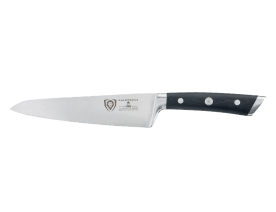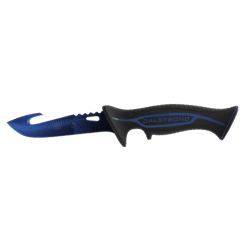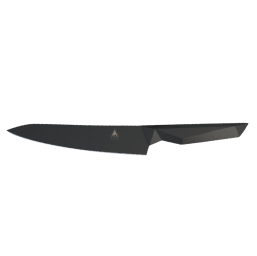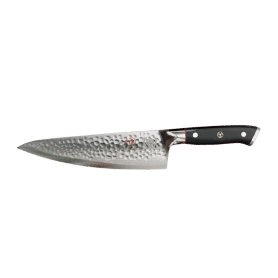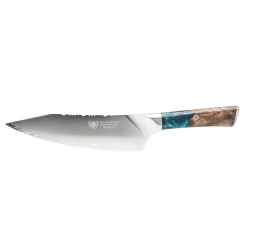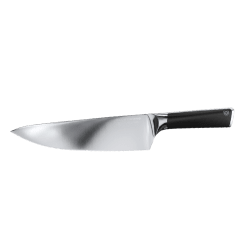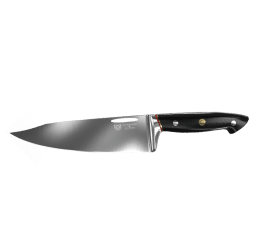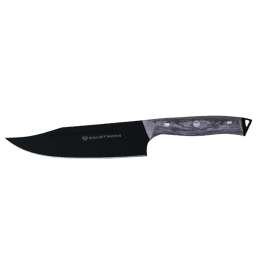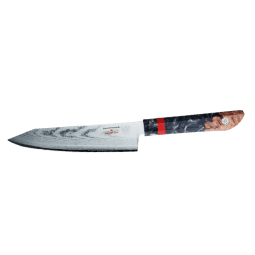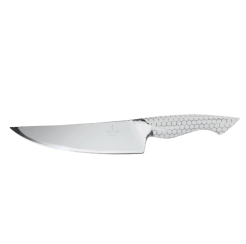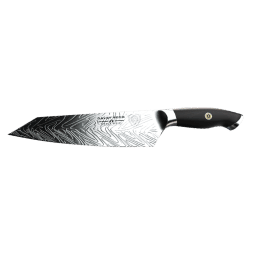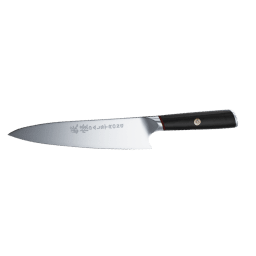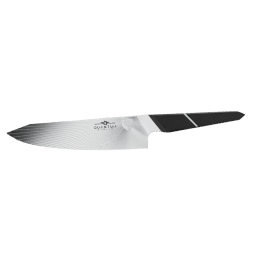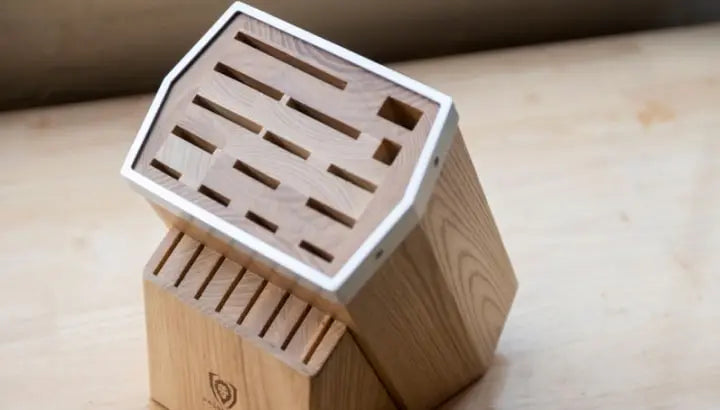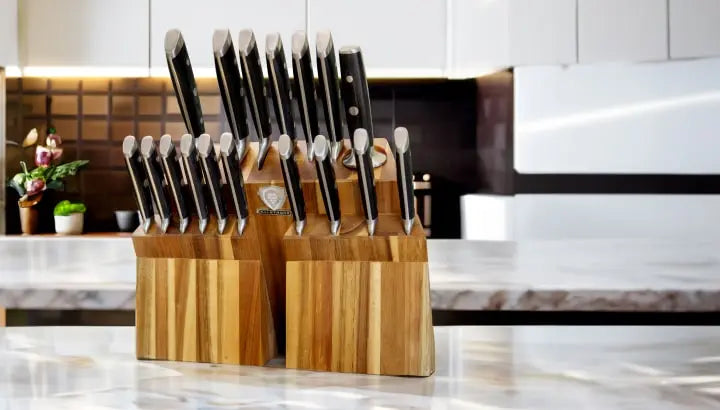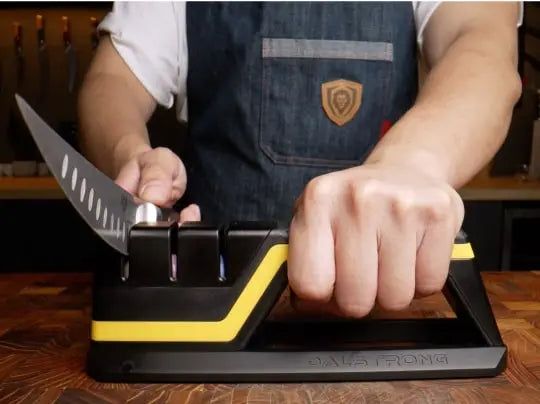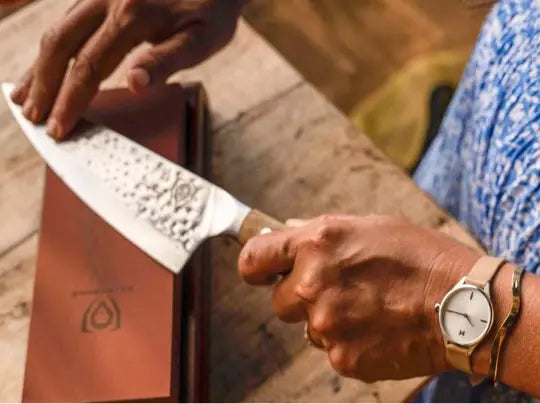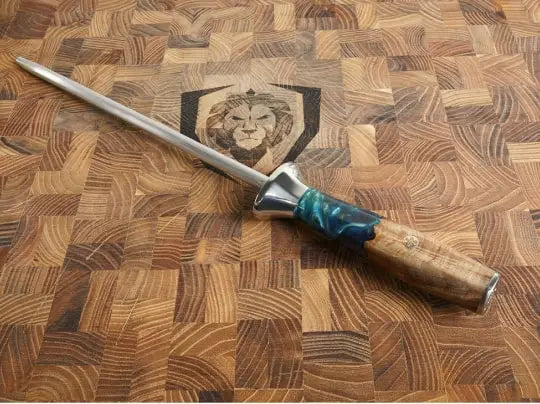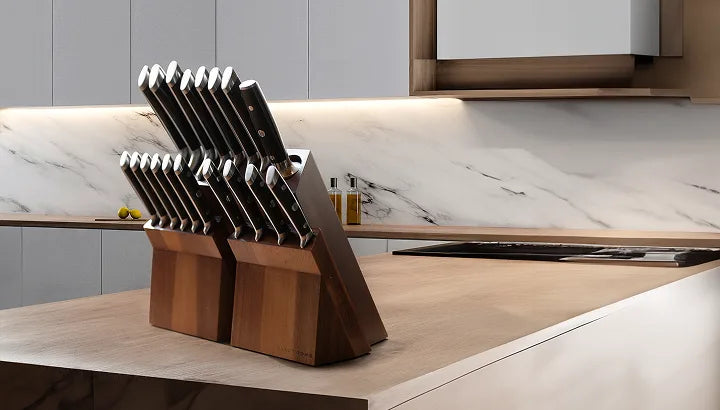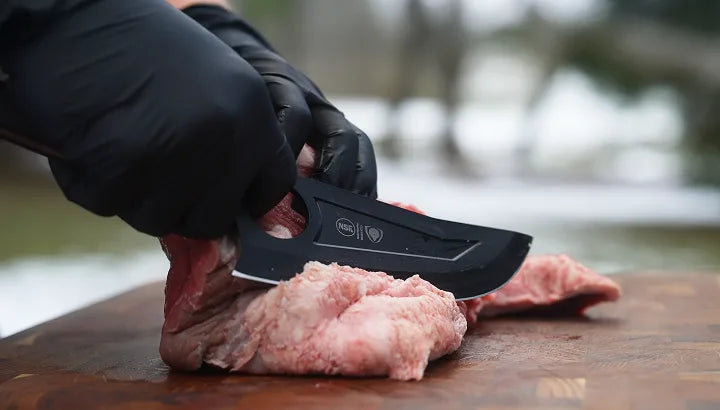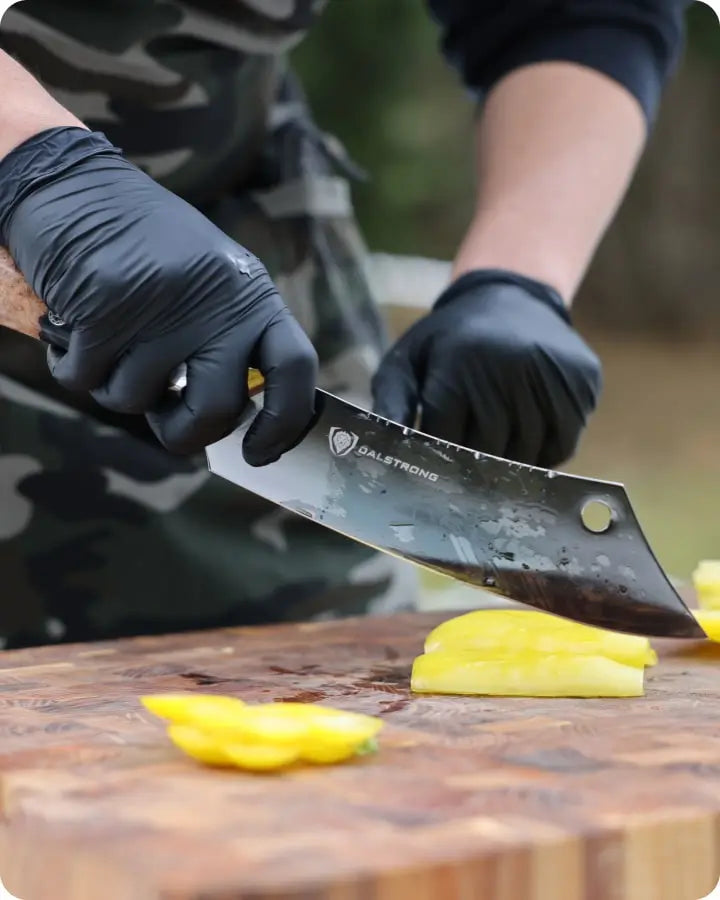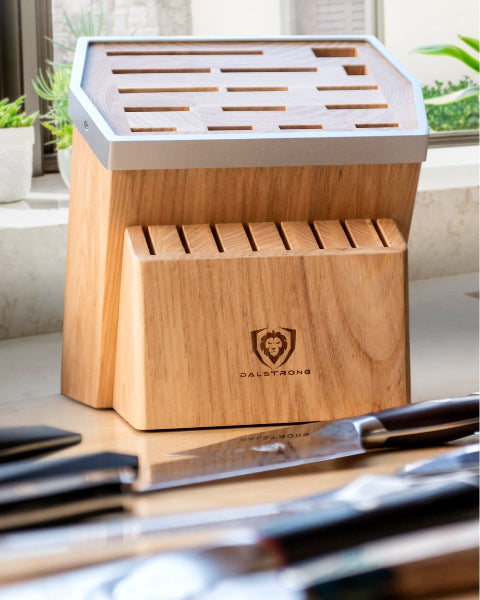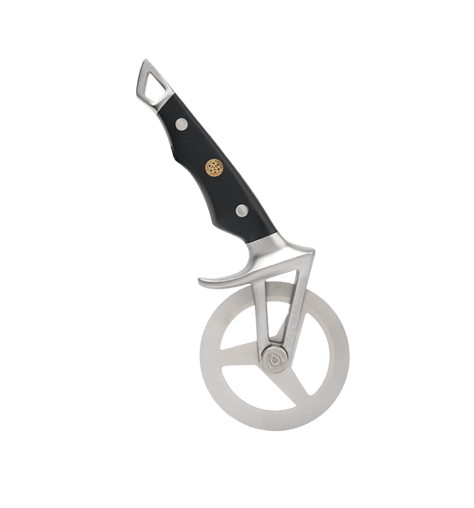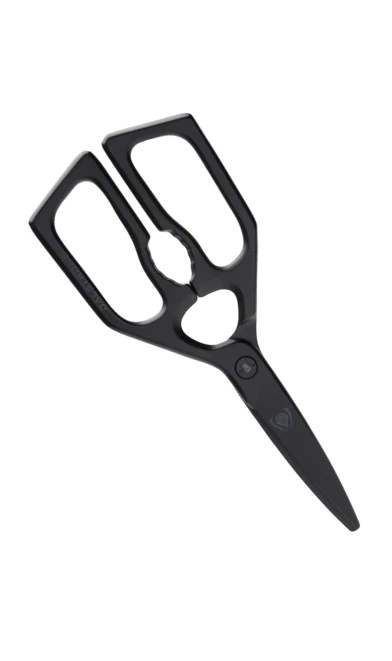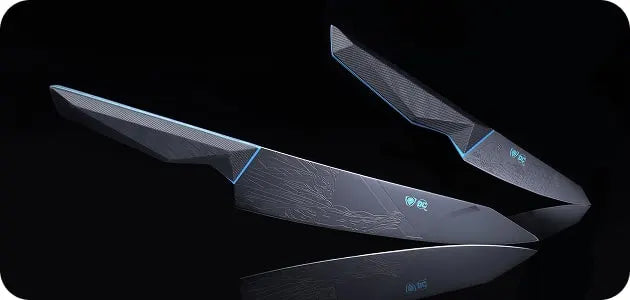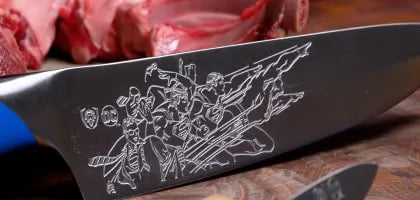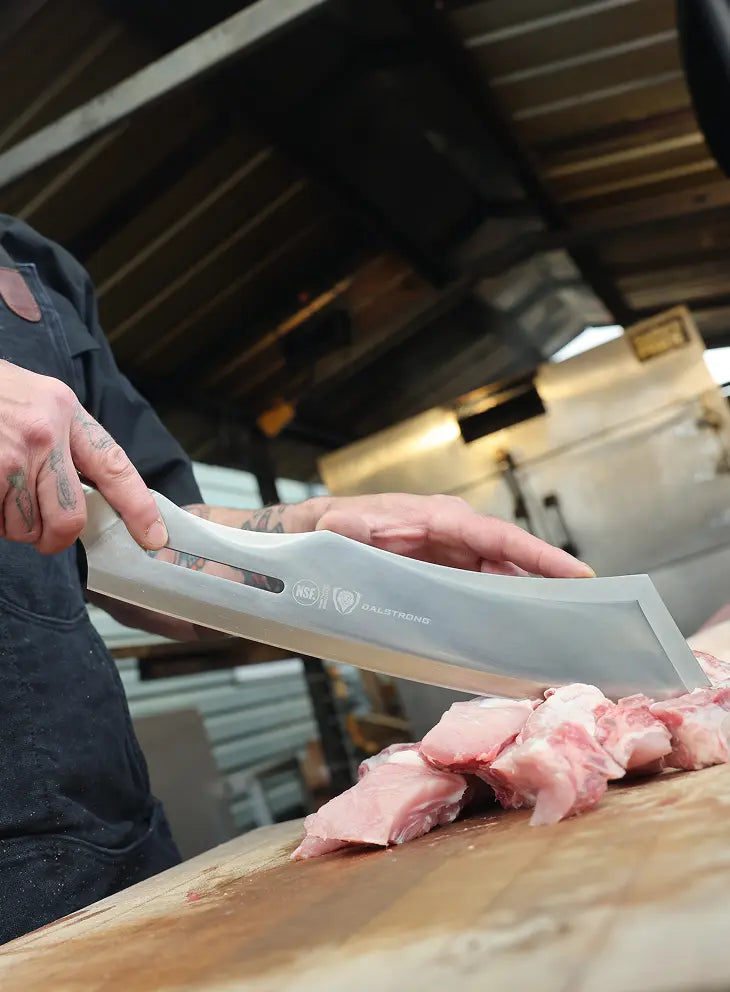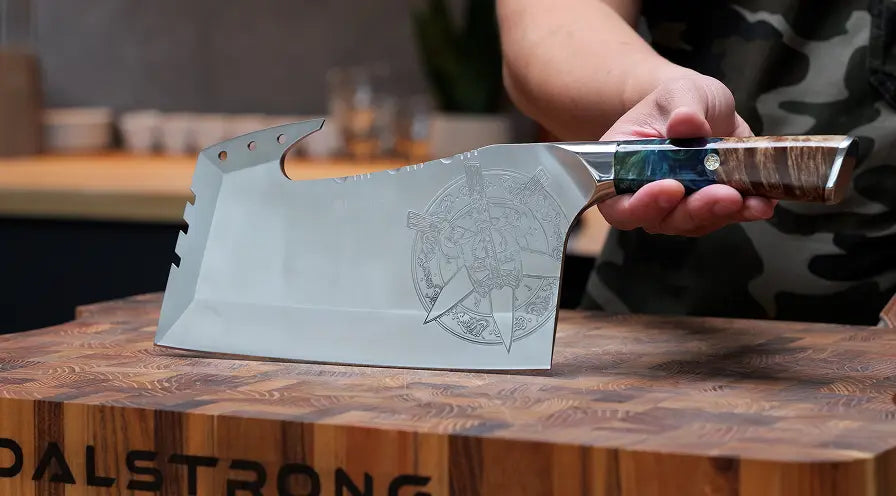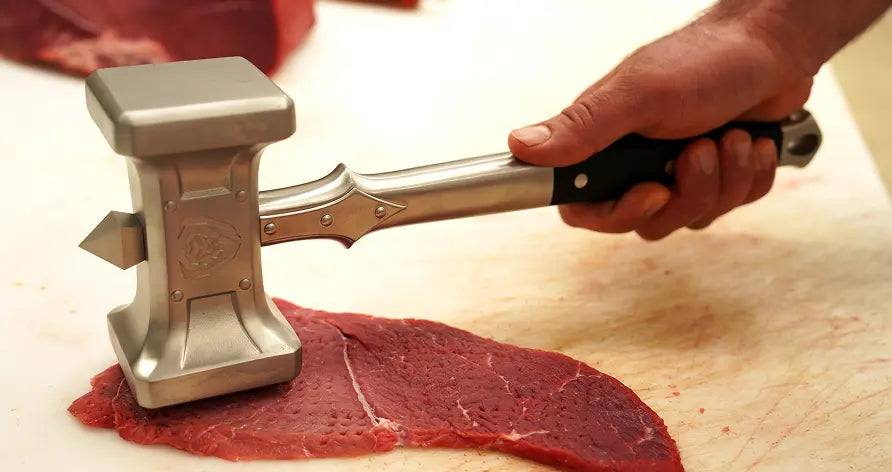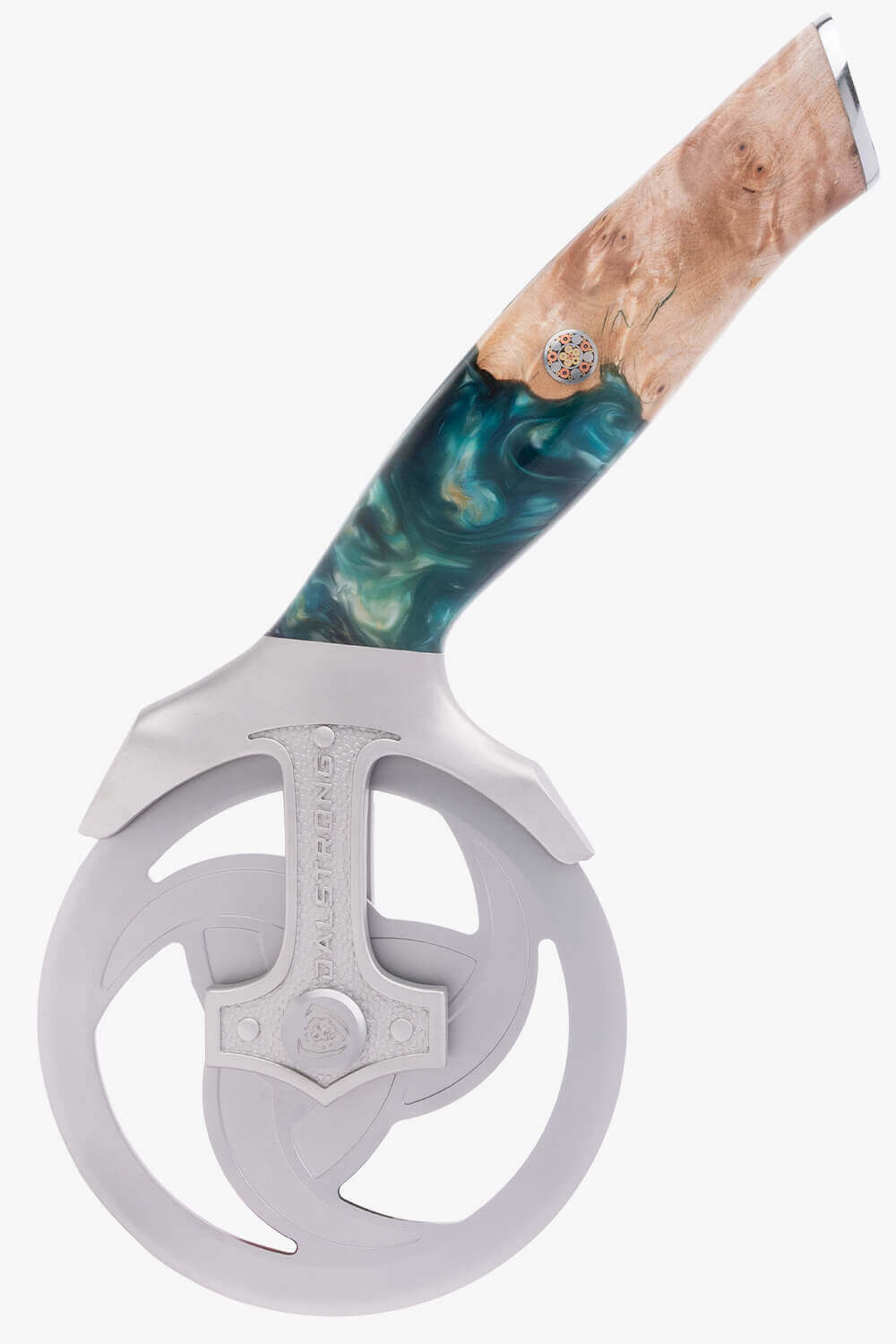 Cooking Tongs | 12" Stainless Steel Arms & Scalloped Tips
Cooking Tongs | 12" Stainless Steel Arms & Scalloped Tips
Cooking Tongs : Make Cooking Easier
Top picks for you:
-
Premium Grill Kit - 4 Piece - Tongs, Spatula, Fork, Silicone Basting Brush
-
Food Tongs 9" Stainless Steel Arms & Scalloped Tips (Coming Soon)
- Food Tongs 12" Scalloped Silicone Tips (Coming Soon)
The history of tongs is not as glamorous as a good old chef’s knife or paring knife. Their design and versatile function have been around for so long that a single inventor cannot be credited for its success. However, the use of tongs in the food space is different for different people.
Available in various designs, sizes, and materials, tongs have proven to be an essential tool for any kitchen. From flipping and turning to serving and plating, tongs can do it all, flawlessly.
1. What Are Cooking Tongs?

A good set of tongs act like an extra pair of hands and come in use when you can’t put your hand into a vat of oil, onto a hot grill grate, or into a pot of pinching lobsters. Just like your hands, tongs should feel strong but without the pain of severely burned fingertips left from grabbing hot pans.
Tongs are rather uncomplicated tools. The most common design features two stainless arms that are connected by a hinge at one end and widen into scalloped grabbers at the other. A metal spring controls the opening and closing action.
Despite the nearly universal design of tongs, they can vary widely in how they feel. While some can be too stiff or wobbly, others can have a wonky mechanism to lock tongs or can pinch your skin when in use. You must always pick tongs that feel comfortable in your hands.
2. Why You Need Cooking Tongs
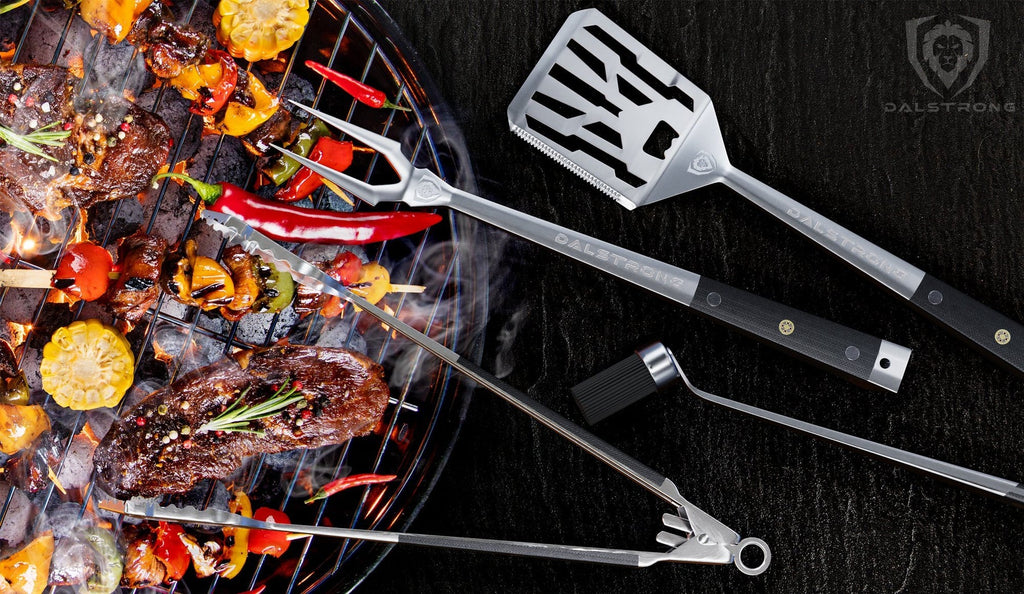
Tongs should be able to grip, lift, flip, jostle and move most foods. They can be useful for lifting pieces of hot equipment and cookware as well. With a good pair of tongs, many common kitchen tasks like flipping shrimp to bigger jobs like yanking a roast out of the oven, become much easier.
You can also use them to flip meat on the grill, serve salads, stir pans and even reach those hard-to-get spots in your pantry. Kitchen tongs need to be able to handle abuse, like high temperatures and lobster claws.
Foods like dim sum, sushi, and noodles are best served with a pair of tongs. This makes it easier to lift them from the serving tray and place them on a plate. The right grip of the tongs also helps hold slippery foods tightly, which would be difficult to pick up with a fork, spoon, or even your hands.
But they are not the only benefits you can reap out of a simple pair of kitchen tongs. You can put them to good use in several other ways. Here are some ways you can use kitchen tongs other than lifting and plating food.
Flip and upend foodA good kitchen tong set is not only useful to serve noodles but can also be used to cook them. When you boil noodles or cook them with other ingredients, flipping and upending them on the stove becomes simple with tongs. You can also use them to take out dim sum from a steamer or turn spaghetti and meats. You can also use tongs to lift foods like potatoes from boiling water.
Toss fresh salad
A delicious salad is all about combining the ingredients and spices in a bowl and mixing them well together. Yes, making a salad is fairly easy but you can make it easier by using salad tongs. This will ensure that all the foods are mixed thoroughly.
Let’s face it, not all of us are tall enough to reach the top shelf of cabinets to pick food items and other things. To help you with this, simply grab a pair of tongs and get the items down easily.
Hold hot pots
All pans and pots don’t come with heat resistant handles. While some people use a kitchen cloth for this, it is not the safest option when it comes to holding the pot while stirring or lifting the pot from the stove. You can use two pairs of tongs with a strong grip and use them as handles to do the job with great ease.
Cook, clean, and grease the grill
In between cooking more than one batch of food on a grill, you can use tongs to clean the grill grates and even grease them again for the next batch. Avoid taking your hands near the grate and reduce the risk of touching the grill. Place a clean towel between the tips of the tong and reach the grill from a safe distance.
3. What To Look For In Cooking Tongs

Typically there are 6-inch to 16-inch cooking tongs. Cooking tongs are also available in different materials like metal, bamboo, aluminum, nylon, plastic, and more. You can also find tongs that look like tweezers and tongs that have scallop-like grabbers. But how are you supposed to know what’s right for you?
Well, here are a few things that I would keep in mind before investing in a pair of cooking tongs.
Material
The most durable and heat resistant kitchen tongs are typically made from materials like stainless steel, aluminum, or silicone. Not only are these materials tough and durable but are also easy to wash and food-safe. You can also find plastic and wooden serving tongs in the market, however, they are not recommended for cooking.
While stainless steel locking tongs are most preferred, silicone tip tongs can also be used in non-stick pans which makes it a better choice, especially if you’re only going to buy one pair of tongs.
Size
The size of the tongs is one of the most important things to consider. Small or mini tongs usually measure about 6 to 7 inches, average-size tongs measure anywhere between 9 to 12 inches and longer tongs, that are typically used for grilling, are 12 or more inches long,
Between 9 to 12 inches is the best size for everyday cooking.
Whether you’re grilling a rib-eye on a hot iron skillet, fishing out a whole chicken from the stockpot, or tossing pasta to coat it in sauce, being able to use a pair of tongs with precision and confidence is very important. This is why you should avoid long tongs. Always remember that longer tongs mean less control over precise maneuvering.
Tip of tongs
While most tongs tend to have a stainless steel body, the tips of the tongs may vary. Some tongs come with a stainless steel tip while others may use silicone. Silicone tips are usually recommended for use with nonstick pans or cookware that tend to get scratched. While this is the case with tongs with silicone tips, it is worth noting that stainless steel tips are generally more durable.
Spring tension
Typically, tongs are built with spring tension that pushes the arms apart, but how strong the tension varies with each pair of tongs. The best kitchen tongs should not be too rigid, as they can tire the cook’s hands quickly. You must also avoid tongs that are too loose.
A locking mechanism is built into the spring tension that helps keep the arms of the tongs shut when stored away. Tongs with a lock system are very important for storage.
Nonslip handles
There are 2 types of handle shapes spring and scissors. The scissor can be difficult to maneuver, which is why most people prefer the spring one. Moreover, you don’t need to exert too much pressure on the tongs with a spring handle.
A non-slip handle is a must in a good pair of tongs. With this feature, the user can maintain a controlled grip while maneuvering anything from the slenderest stalks of asparagus to the heaviest of roasted chickens.
Low maintenance
Washing kitchen utensils can be a drag which is why it is very important to choose a pair of tongs that are easy to scrub and wash. Tongs that are easy to maintain feature removable tips or shallow ends that prevent food from getting trapped inside. I also recommend you pick a pair of tongs that are dishwasher safe.
4. Different Types Of Cooking Tongs

A good pair of kitchen tongs will keep your hands safe whether you’re tossing a few patties, handling deep-fried goodies, or plating some pasta. Although kitchen tongs have many uses, all the models don’t perform equally. Depending on the type of food you usually prepare, you made need to invest in different tongs to achieve optimal results.
Here are some of the commonly found kitchen tongs available in the market:
Utility Tongs
These are arguably the most popularly used tongs. They come with a comfortable non-stick handle, stainless steel design, and medium-sized pincers with scalloped edges. These types of tongs are excellent for general, day-to-day kitchen tasks like flipping meat on stovetops, handling delicate vegetables like asparagus, removing cooked foods from boiling water, handling hot foods from the oven or grill, and scooping food into your pan.
Most utility tongs are designed to withstand high temperatures, making them ideal for handling hot food and are dishwasher safe. When using plastic tongs, ensure they are specifically designed to withstand high heat to prevent them from melting or burning. Utility tongs come in a variety of sizes and lengths as well. Shorter tongs are best for serving and plating foods while longer tongs protect hands and arms from splattering oil or grease and high heat when grilling or cooking over an open flame.
Serving Tongs
Serving tongs are mainly for show. They are smaller-than-average tongs that are fantastic if you like sharing appetizers with your friends and family. You might often see a waiter use these shiny, spoon-tipped tongs to put a beautiful herbal flourish on your dinner plate.
The most common type of tongs are buffet, salad, and scissor-style tongs. Just like the utility design, serving tongs can be made of materials like plastic, wood, and bamboo.
Buffet tongs have a triangular or scalloped tip, making it easier to pick up and serve different types of foods. Most salad tongs have a fork-tip and a spoon-tip to transfer and serve delicate greens and mixed salad efficiently.
Scissor-style tongs use a pivoting motion, just like scissors to open and close the arms of the tongs. Scissor tongs have paddle-shaped tips that provide a better grip when dealing with bulky items like baked potatoes or corn on the cob.
Serving tongs also serve a very specific purpose such as placing ice cubes in drinks, transferring slippery foods like noodles, and food styling in fine-dine restaurants. You will also find people use bamboo or wooden tongs to safely retrieve bread from a toaster over.
Because of their multiple uses, serving tongs are made of materials that can withstand both, hot and cold temperatures. Most of them are also dishwasher safe unless they are designed to be disposable, recyclable, or compostable.
Stainless Steel Tongs
Stainless steel is the most widely used material in modern cooking tongs. Many people love using stainless steel locking tongs because they can get an amazing grip on whatever they’re working with. Also, stainless steel is super durable, which can make these tongs last a lifetime.
On the downside, steel conducts heat, so it can’t be used for long when dealing with hot food. Also, stainless steel tips can chip away easily when it comes in contact with non-stick surfaces.
Barbeque Tongs
Do you also love a good BBQ session? When cooking on the grill, you must ensure as much space between you and the flames as possible. It is for this reason that BBQ tongs typically measure at a minimum of 16 inches. While these tongs might be slightly difficult to store, these large tongs are perfect for handling barbeque meats from a safe distance.
Pasta Tongs
These tongs come with a terrific teeth-like design and act as the ultimate spaghetti-scoopers. You can also use these tongs to get a firm handle when plating, tossing and serving noodles. Although these tongs are designed keeping pasta and noodles in mind, some cooks also use them to toss salads. If pasta night is almost every night in your home, then I’d highly recommend you invest in a pair of pasta tongs.
Pom Tongs
This might be the least popular category when it comes to tongs. Pom tongs are usually made with steel and have curved pincers with jagged edges to help you grab delicate edges. Cooks often prefer using pom tongs when they need to flip bacon or serve the salad.
5. Stainless Steel Tongs Vs. Plastic Tongs
Stainless steel and plastic are two of the most widely used kitchen tongs material. Let’s take a closer look at the differences between the two materials.
|
Attributes |
Stainless Steel Tongs |
Plastic Tongs |
|
Durability |
Stainless steel is highly durable, non-toxic, and long-lasting. Tongs made with this material work very well in high temperatures. |
Plastic tongs can chip and shred with use. The damage from everyday use also allows toxins to enter your body. While these tongs may be heat-resistant, they are not heatproof and can melt with extended contact with a hot pan. |
|
Maintenance |
Stainless steel tongs are easy to clean and care for. This makes it the preferred choice for novice cooks like students. These tongs need to be cleaned with hot soapy water after use and could use a little scrub if needed. |
Plastic cooking tongs can be hard to clean, especially if the plastic on the end of the tong has broken down with wear and heat. Scrubbing can also cause more damage. The rough edges with mixed components can be a bacteria risk. |
|
Price |
Stainless steel tongs are slightly pricier than wooden or plastic tongs. |
These tongs are relatively cheap. |
|
Compatibility with Non-stick cookware |
One downside of using stainless steel cookware is that it can scratch the surface of non-stick pots and pans. |
Plastic tongs work well with non-stick surfaces and ensure very little to no damage to the surfaces. |
|
Heat Transfer |
Stainless steel tongs can get hot especially if they don’t have a dependable handle. |
Plastic tongs prevent the transfer of heat across the tong but that is only up to a certain temperature. In extremely high temperatures, the plastic of the tongs can start to melt. |
6. Recommendations For Cooking Tongs
1. Premium Grill Utensil Kit - 4 Piece - Tongs, Spatula, Fork, Silicone Basting Brush
Here’s a grill utensil kit that will meet all your barbeque needs like a pro. Flip the most delicate meats with the BBQ grill tongs that feature gentle teeth that will not pierce meats and help preserve all the precious juices inside, where it belongs.
Pros:
- Crafted with food-grade stainless steel, the grill tongs, spatula, and fork of this kit are highly impervious to heat, cold, and moisture proving them with strength and life-long durability.
- The tools are designed to maximize food release.
- The nonslip handles come with a comfortable grip making it easy to lift both lightweight and heavy portions of meat.
- Easy to use stainless steel locking mechanism.
Cons:
- While the products in this kit are of top quality, they can get slightly heavy to use.
- It is priced on the higher side so if you’re an amateur cook, you might not need all the tools, making this kitchen tong set slightly excessive.
Coming Soon Products
2. Food Tongs 9" Stainless Steel Arms & Scalloped Tips

These tongs will be the perfect extension to your hands. Whether you’re an aspiring chef, a seasoned professional or just someone who cooks as a hobby, this pair of tongs will help you get the job done. You can reach fearlessly into flaming-hot environments to better control the cooking process and nudge your food in the direction of perfection.
Pros:
- Enjoy amazing strength and balance when handling heavy cuts of meat or veggies.
- Pick wet, small, and slippery ingredients like beans and pasta with great ease with these heat-resistant stainless steel grabbers.
- The 9” length of the tongs will keep your hands safe and away from heat and splattering oil.
- The easy stainless steel locking allows you to close and reopen the tongs with ease.
Cons:
- The stainless steel tongs can chip and damage non-stick surfaces.
- If you’re enthusiastic about BBQs, you might want to opt for our grill kit.
3. Food Tongs 12" Scalloped Silicone Tips

Tongs with silicone heads are an easy-to-use extension of your hands. Handle heavy cuts of meats and delicate veggies with great ease and precision. Now, you can reach culinary glory with these ultra-durable, premium tongs with a 12” length for maximum leverage and reach.
Pros:
- The length of the silicone kitchen tongs provides better control and helps handle meats and veggies with ease.
- The silicon tips add protection and keep those silicon-coated pans safe and away from accidental damage.
- It enables better grabbing of your food items and ensures scratch-free handling.
- The 12” length of the silicone tongs with heat-resistant silicone makes them ideal for working in extremely high temperatures.
- Easily close the silicone tongs for storage with the quick-lock mechanism.
- Safe for nonstick pans.
Cons:
- The 12” length of the tong can be tough to control in certain cases.
- The tong is priced slightly higher as compared to the ones you’d find in the market.
7. Frequently Asked Questions

What tongs are best for cooking?
The best tongs for cooking would be stainless steel tong that ranges between 9 to 12 inches in length. If you plan on using the tongs with non-stick utensils, you must go for silicone kitchen tongs. This will prevent the non-stick cookware from scratches and other damages.
What is the use of tongs in cooking?
Tongs are tools to hold or grip items. In the kitchen, these items are usually food that is too hot to handle with bare hands. Tongs are mainly used for grilling and serving salads or spaghetti. They provide a way to move, rotate and turn the food with delicate precision. You can also use tongs to perform kitchen tasks like breading fish fillets, grabbing fried chicken from hot oil, or handling oddly shaped food that you can normally handle easily with your hands like corn cobs and a bunch of lettuce greens or even pasta.
What are the different types of tongs?
Depending on the type of food you usually prepare, you made need to invest in different tongs to achieve optimal results. The most commonly found types of tongs are utility tongs, serving tongs, stainless steel tongs, barbeque tongs, pasta tongs, and pom tongs.
What size kitchen tongs do I need?
A 9-inch kitchen tong can be helpful when you need it for serving. However, a 12-inch kitchen tong is recommended as it can help perform multiple kitchen tasks with precision and ease.
Check Out Dalstrong Knives Today
Written by Himani Vaid
Toronto-based food nerd turned food storyteller, Himani is a connoisseur of all things delish. Currently, busy thinking about what to eat next.


